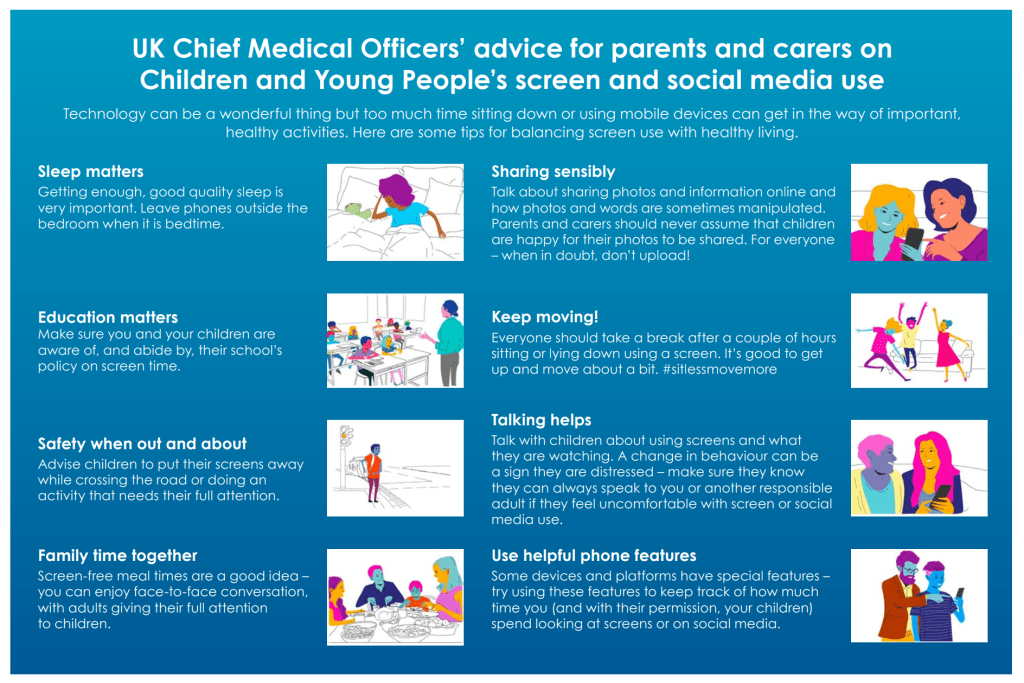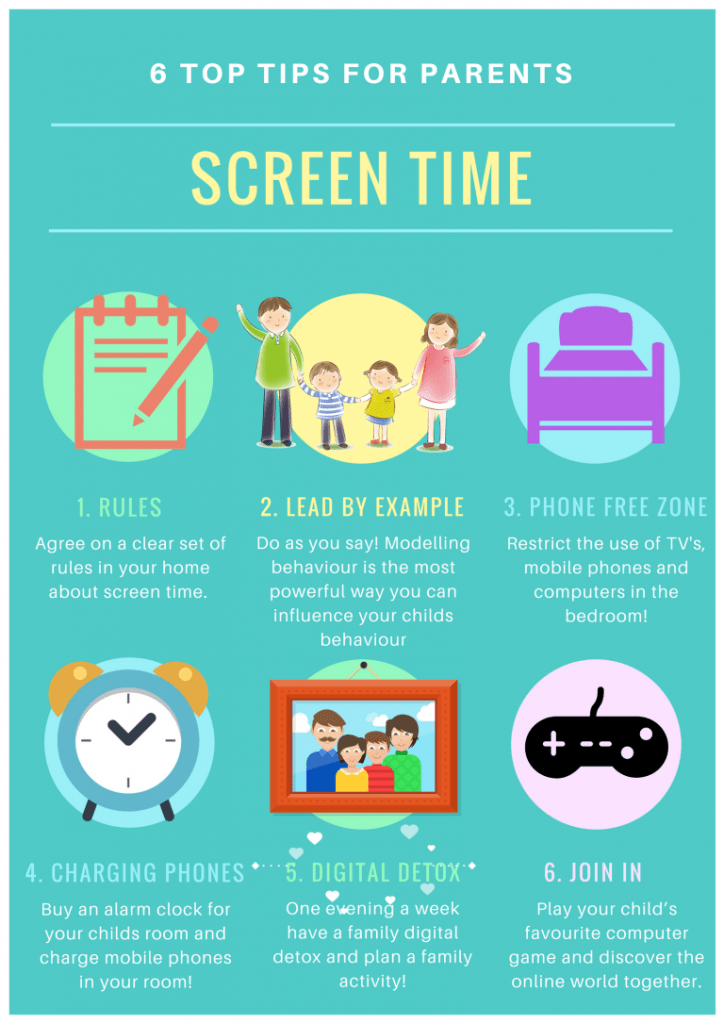Safeguarding Blog
Calling time on screen time!?
I’ll let you into a secret – I don’t like the term screen time; I think it’s unhelpful as a concept, let alone as a framework for discussion or safeguarding. So it’s ironic I’m writing a blog about it. Read on to find out more…and yes, to see some guidance on it too!
Many column inches are dedicated to the issue of children’s screen time each week – normally along the lines of “it’s out of control!” or “the country’s going to the dogs, and it’s all because of excessive screen time”. Until recently, these articles referred to 20-years-old US screen-time rules which were actually written for television viewing, but now two UK bodies have published great advice to help frame the debate.
The Royal College of Paediatrics and Child Health (RCPCH) has published The health impacts of screen time: a guide for clinicians and parents; and from the UK’s Chief Medical Officers (CMO), we have the snappily titled Screen-based activities and children and young people’s mental health and psychosocial wellbeing: a systematic map of reviews.

Both are worth a read and may surprise you if you have heard about them, as some extracts were rather selectively quoted to fit a particular narrative. But here’s the rub – neither of them recommend a one-size-fits-all screen-time limit, and what pleases me is that they actually seem to mainly talk about the term to debunk it.
CMO tells us “scientific research is currently insufficiently conclusive…”, “[no] evidence of a causal relationship between screen-based activities and mental health problems”. And from RCPCH: “time spent on screens – from social media to computers and television – is a major part of modern life and a necessary part of modern education.” The popular view that “screen time is directly ‘toxic’ to health […] has essentially no evidence to support it”.
The two bodies don’t dismiss popular worries, recommending further research whilst warning against the classic correlation-causation trap (as illustrated by these classic Tyler Viglen graphs). As the CMOs point out, “it could be, for example, that CYP who already have mental health problems are more likely to spend more time on social media.” Also, they warn against conflating three distinct issues:
- Screen time
- Content (is it educational, illegal, creative, inspirational, negative?)
- Persuasive design (make sure you read this by 5 Rights)
It is important to remember at this point that the internet is an amplifier for whatever we put into it, and it holds up a mirror to society – when good things happen online, they can be made amazing; unfortunately, the reverse is very much true as well. That’s why I’d rather focus on what is happening on the screen than how much time is spent on it.
RCPCH and CMO do offer warnings, and advise caution – always balanced against the potential benefits of screen-based activities. Where a young person is missing out on physical activity, time with friends or family, schoolwork, or of course sleep, screen-time limits are needed.
RCPCH points out that it is easy to lose track of what you eat, so snacking can be a big problem, and we must never forget how important it is for young people to get enough sleep every night. As with all issues around online safety and digital resilience, a conversation is needed between schools, parents and young people.
So how can we support parents? Use the handy overview flyer for parents from the CMO document, for example (see image above) and use these practical questions from the RCPCH guidance:
Is screen time in your household controlled?
Does screen use interfere with what your family want to do?
Does screen use interfere with sleep?
Are you able to control snacking during screen time?
Other great organisations like Childnet, Webwise and Internet Matters have also published accessible information to share with parents. And already a classic is the Digital-Five-A-Day from the Children’s Commissioner, which really helps to show why screen time isn’t just screen time (passively consuming versus active creation, learning, support, etc). You can find links to all of these via www.screentime.lgfl.net

All of these great tools can help parents take control, support and learn alongside their children, without focussing on an artificial ideal time limit. After all, as RCPCH points out, what about homework done on screens – is that all bad? Should all screen-based fun time be cancelled if this week’s homework was online?
We have come this far and not said much about all the content and contacts online that cause concern and sometimes great damage. These problems are well documented elsewhere (e.g. in the news every day, and of course in Hopes and Streams). But screen-time limits won’t help here, as it only takes a second to click on a bad link to a self-harm image, beheading or pornography; and a bullying message doesn’t take long either.
In school, we help prevent this with made-for-schools filtering and many other protections, but at home it’s different.
That’s where all the sensible precautions around using filters at home come in, plus of course making sure you know and can see what your children are doing and having an open conversation around what goes on online, and what shouldn’t. Have a look at parentsafe.lgfl.net or screentime.lgfl.net to find out more about some of the great ways there to get these conversations started. You will also find links to tools from Google and Apple to help adults and young people monitor and control their own screen time and see how much time they really spent being creative as opposed to mindless scrolling…
And it would be remiss to go any further without mentioning that the best source of research in this area is from Sonia Livingstone from the LSE, who has has writing about screen time and related issues for years. Check out her blog for fascinating insights into this and many other topics relating to digital parenting.
I would write more, but I’m fast approaching my screen-time limit, so I’d better get off and…


